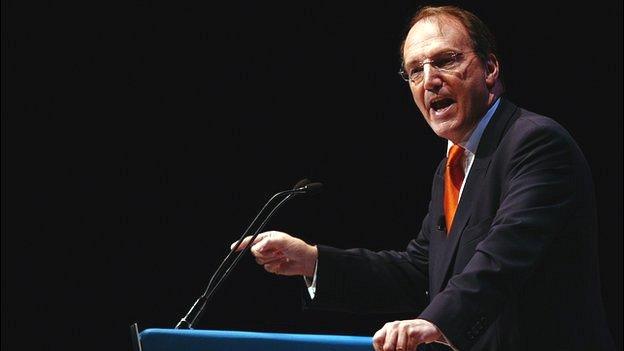Scottish parties get general election campaigns started
- Published
Four months to go until the general election - but politicians have started the new year by beginning their campaigning.
Scotland's political parties have fired the UK election starting gun, ahead of voters going to the polls in May.
Scottish Labour leader Jim Murphy pledged to deliver 1,000 more nurses, while saying a vote for the SNP could leave the Conservatives in power.
Nicola Sturgeon, Scotland's first minister, said backing the SNP was the only way to have Scotland's voice heard at Westminster.
Scots Tory leader Ruth Davidson warned against an SNP/Labour election pact.
Announcing his first election pledge during a speech in Edinburgh, Mr Murphy said Labour's planned "mansion tax" on the owners of expensive homes would help fund an extra 1,000 NHS nurses in Scotland.
He said the pledge was over and above anything the SNP had proposed, adding: "People value the NHS above almost everything else government does."
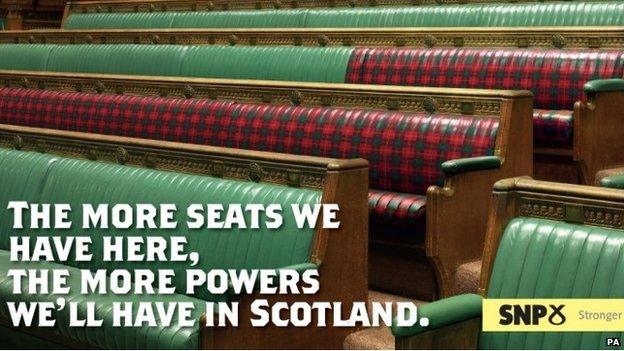
The SNP's latest campaign poster outlines the party's aim to increase the number of Westminster seats it holds
On the election battle ahead, Mr Murphy said: "Scotland has two parties telling it that they are powerless to make this sort of change.
"For the Tories the excuse is the deficit. For the Nationalists the excuse is the union.
"If they can't make a difference then they should move over for people who can. I don't think people want to hear excuses anymore."
The MP added: "2014 was a year when Scotland cried out for change - 2015 must be the year when we answer that call for change."
Labour has the most Westminster seats in Scotland, having won 41 in the 2010 election, while the SNP has six.
The Liberal Democrats have 11 seats, while the Conservatives have only a single Scottish MP.

ANALYSIS
By Brian Taylor, BBC Scotland political editor
Got your decorations down for Twelfth Night yet? Well, what you will. But what next, now that we are done with the festive season?
How does a General Election campaign suit you?
This promises to be a fascinating, multi-faceted contest. In Scotland, the outcome could depend upon mindset.
Are folk still in post-referendum mode, searching for the option which best speaks for Scotland? Which might, potentially, benefit the SNP - as it has done at Holyrood elections.
Or can they be persuaded to move on from the referendum, to contemplate the next occupant of Number 10 Downing Street, to focus upon the colour of the UK Government?
Which might, potentially, benefit one or more of the parties which operate on a UK basis.
It is, of course, more complicated than that.

The SNP, which has seen a recent surge in membership, is seeking to increase its MP numbers with the aim of potentially holding the balance of power on the event of a hung parliament.
But Mr Murphy said voting for the Nationalists could see David Cameron returned to power as an "accidental victor" in May.
Meanwhile, Ms Davidson claimed Ms Sturgeon and Labour leader Ed Miliband were "already halfway down the aisle" to forming a new government which could see Britain being "run into the ground".
Nuclear weapons
In a letter to Conservative supporters, she said: "Think what it would mean - a weak Ed Miliband as prime minister with the SNP pulling the strings.
"Just when families and businesses need some security, the Nationalists would plunge us back into an uncertain world.
"The truth is that the Scottish Conservatives are the only option in Scotland if you want to keep the UK together and keep Ed Miliband out of Downing Street."
Ms Davidson's comments came after Scottish Labour deputy leader Kezia Dugdale said at the weekend she would have "no qualms whatsoever" about working with the SNP.
Ms Sturgeon said a strong team of SNP MPs was needed to ensure the next UK government delivered increased Scottish powers laid out by the Smith Commission, in the wake of the referendum vote against independence.
The SNP leader told BBC Scotland: "I heard Ruth Davidson saying, 'vote SNP and it helps Labour,' but I've also heard Jim Murphy say, 'vote SNP and it helps the Tories'.
"Actually, neither of these things are true - voting SNP helps Scotland, because it helps make sure Scotland's voice is heard, Scotland's interests are protected and we get those extra powers for our parliament that were promised during the referendum."
Ms Sturgeon added that she was "not instinctively that keen on coalitions", adding: "The SNP would never support formally or informally a Tory government, but we could make sure that Labour didn't get away with taking Scotland for granted in the way that it has done for far too long."
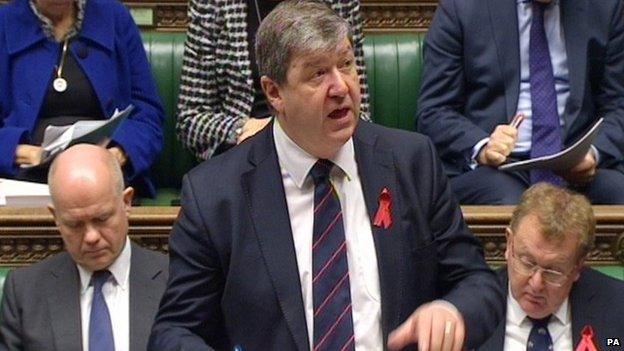
Alistair Carmichael said the Lib Dems had worked to ensure new powers were delivered to Scotland
She said her party would continue to oppose spending £100bn on replacing Clyde-based Trident nuclear weapons - a decision Labour may have to make in government - while people were still struggling "at a time of austerity".
Elsewhere, Scottish secretary and Lib Dem MP Alistair Carmichael promised new powers allowing 16 and 17-year-olds to vote in Scottish Parliament elections would be transferred to Holyrood before the UK election.
He also said "good progress" had been made on a bill for Scotland's new devolved powers, which will be put on hold until after May.
Mr Carmichael said his party had been working hard to deliver new powers to Scotland, adding that there was "a lot of heavy lifting" to be done to rebuild the economy in the next parliament, which may require another coalition government.
He said: "As (UK Lib Dem leader) Nick Clegg is reported as saying this morning, the biggest threat to the economy is not the Labour Party or the Tory Party - it's the pair of them.
"Also here in Scotland we have the SNP who seem to see the May election as some sort of game that gives (former SNP leader) Alex Salmond a new job as kingmaker, as if the election is to be fought and won on the grounds of his ego rather than the fragile state of the economy.
- Published5 January 2015
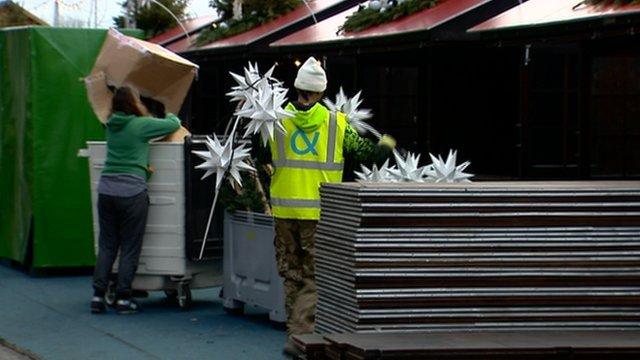
- Published5 January 2015
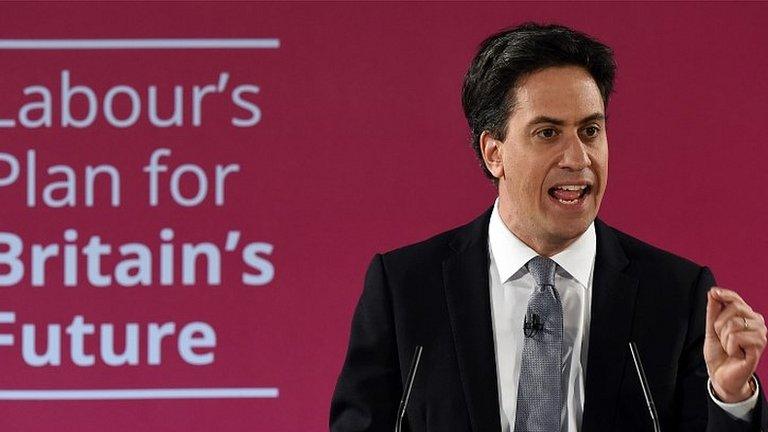
- Published4 January 2015
